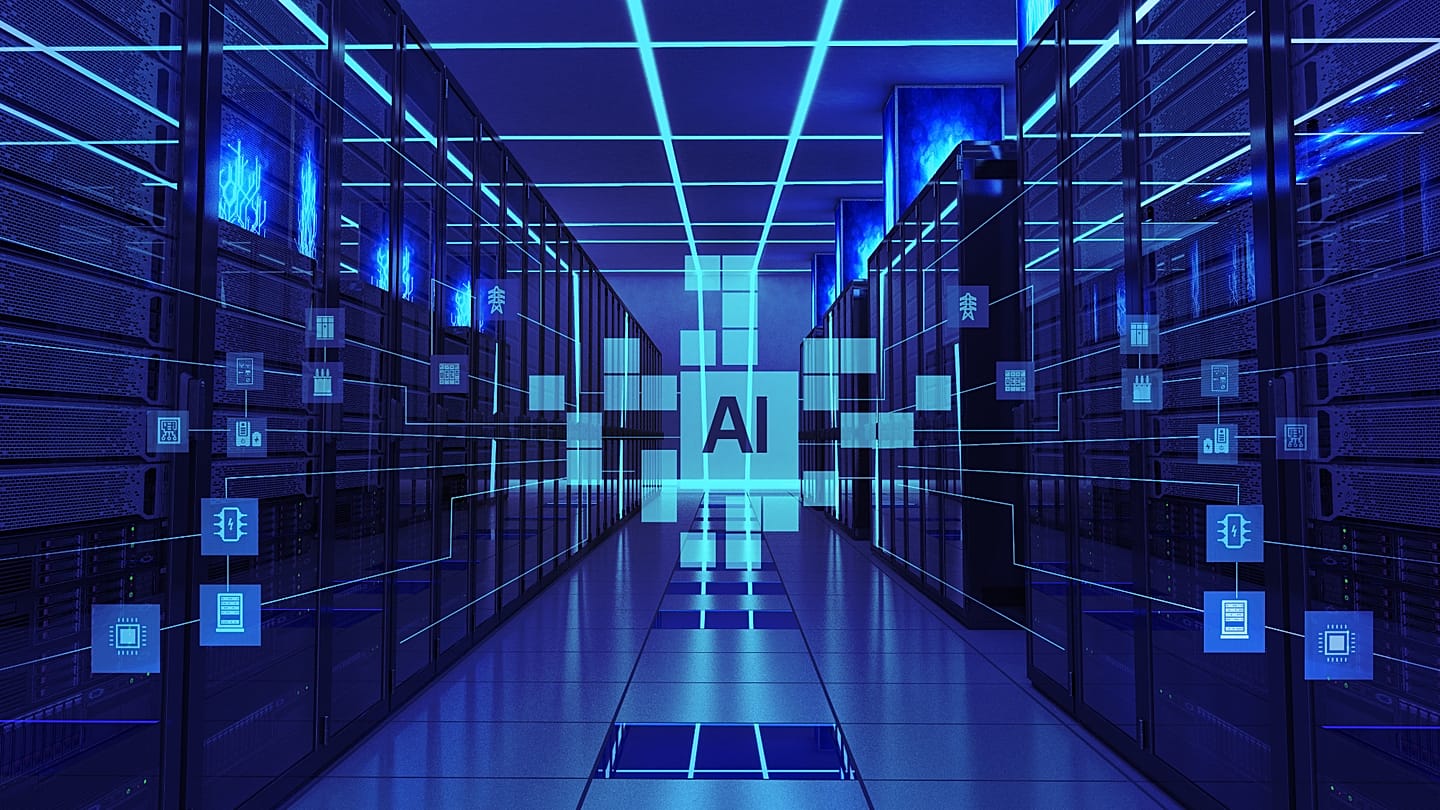
Artificial intelligence (AI) has become an increasingly important part of our daily lives. Many people now use tools such as ChatGPT for work, while others enjoy using AI just for fun, such as creating photos and videos.
But did you know that a single request made through ChatGPT uses about ten times more electricity than a Google Search, according to the International Energy Agency?
It’s not just about energy. The United Nations Environment Programme (UNEP) warns that AI can also harm the environment in other ways. Tech companies need large amounts of raw materials to produce electronic devices, and this process creates a significant amount of electronic waste.
Greenpeace warns that decarbonisation is vital for AI giants to help protect the planet. However, the world’s ten largest AI companies are still far behind in cutting emissions and switching to renewable energy, according to Greenpeace’s ‘Supply Change: Tracking AI Giants’ Decarbonisation Progress’ report.
It examines the decarbonisation progress of the top 10 AI giants. They include global technology and cloud computing giants such as Amazon, Apple, Google, Microsoft, and Meta, plus leaders in semiconductor design, namely AMD, Broadcom, Intel, Nvidia, and Qualcomm.
The report found that most industry leaders have made slow progress — particularly in tackling supply chain emissions, which represent over 80 per cent of the total emissions for Nvidia, Qualcomm, and Broadcom, and as much as 98 per cent for AMD in 2024.
Seven of ten AI Giants failed in supply chain decarbonization
In the supply chain decarbonisation ranking, Apple earned the highest score with a grade of B. Microsoft (C-) and Google (D-) followed. The remaining seven companies received failing grades (F), although their scores varied significantly.
Nvidia, the world’s first $5 trillion firm and a leader in AI chip design, ranked last in supply chain decarbonisation, followed closely by Broadcom in second-to-last place. This is “primarily due to inadequate climate commitments, especially for supply chains, poor supply chain transparency, and insufficient actions to reduce emissions in their upstream manufacturing,” according to Greenpeace.
In the operational decarbonization ranking, five companies received an ‘F’ grade. Apple achieved the highest score with an A-, followed by Google (B) and Microsoft (C)
In the overall ranking, six companies failed, meaning F grades. Broadcom had the lowest score, followed by Nvidia and Intel. Apple ( B+) once again ranked the highest. Microsoft, Google (C-), and Meta (D-) are other companies that did not receive an F grade.
Katrin Wu, Greenpeace East Asia supply chain project lead, noted that companies like Nvidia have gained billions of dollars in revenue and become some of the wealthiest companies in the world.
“They claim their innovative products can save the world from climate crises. However, the innovation is built on dumping supply chain emissions on other parts of the world, especially in East Asia, which faces its own challenges in energy transition and is extremely vulnerable to climate change,” she said.
Companies are not transparent
Nine out of the ten companies, including Microsoft, Google, and Nvidia, received the lowest grade of F for supply chain transparency. This was mainly due to their lack of clear reporting on electricity use and renewable energy adoption among their suppliers.
The report emphasises that manufacturing AI hardware is highly energy-intensive. By 2030, global electricity demand from AI chip production could soar 170 times to around 37,238 gigawatt-hours (GWh) compared to 2023 levels. This is more than the total electricity consumption of Ireland in 2023.
No commitment to full renewable energy
The report found that, except for Apple, the other nine companies have not committed to transitioning to 100 per cent renewable energy across both their operations and supply chains by 2030.
Chip design companies are falling the furthest behind in going green. Nvidia hasn’t set any renewable energy goals for its supply chain, and both Qualcomm and Broadcom still don’t have targets for their operations or supply chains.
Nvidia, Broadcom, and AMD have also not made any promises to reach net-zero or carbon-neutral goals in any part of their business.
An NVIDIA spokesperson declined to comment on this. According to its Sustainability Report 2025, the company set a goal in 2023 to purchase or generate enough renewable electricity to match 100 per cent of their global electricity usage for offices and data centers under their operational control by 2025.
“We’re happy to announce that we achieved and will maintain 100% renewable electricity for offices and data centers under our operational control,” the report read.
UN and Greenpeace call for greener AI
Greenpeace East Asia called on AI giants to commit to transitioning to 100 per cent renewable energy across their supply chains by 2030. The organisation also urged companies to improve transparency in their supply chain decarbonisation efforts to enhance accountability and prevent greenwashing.
According to the UNEP, more than 190 countries have adopted a series of non-binding recommendations on the ethical use of AI, which also address environmental concerns. Both the EU and the US have introduced legislation aimed at reducing AI’s environmental impact. However, the effectiveness of these efforts remains uncertain.
“Governments are racing to develop national AI strategies, but rarely do they take the environment and sustainability into account. The lack of environmental guardrails is no less dangerous than the lack of other AI-related safeguards,” said Golestan (Sally) Radwan, the chief digital officer of the UNEP.